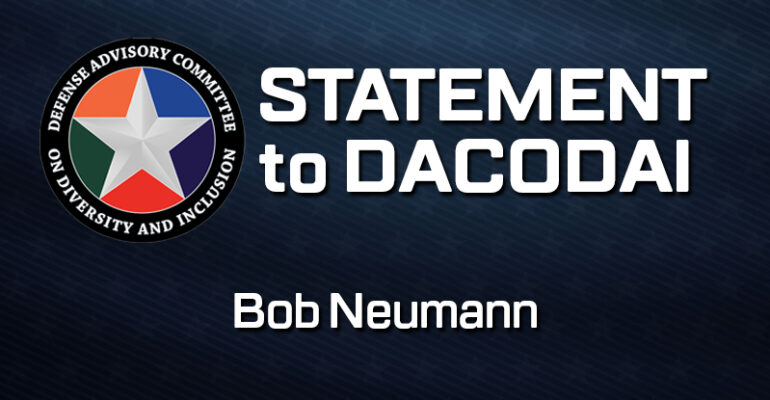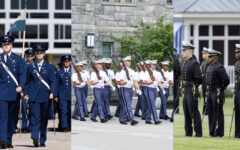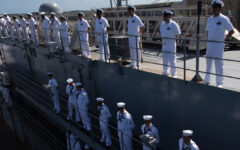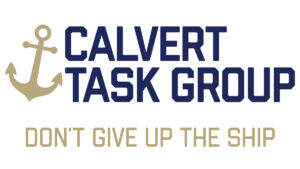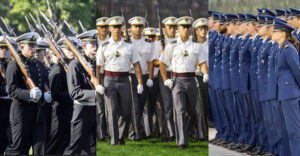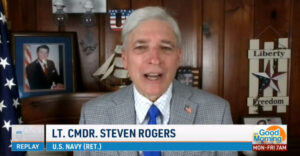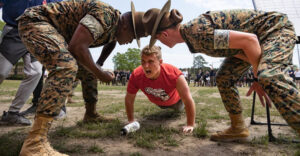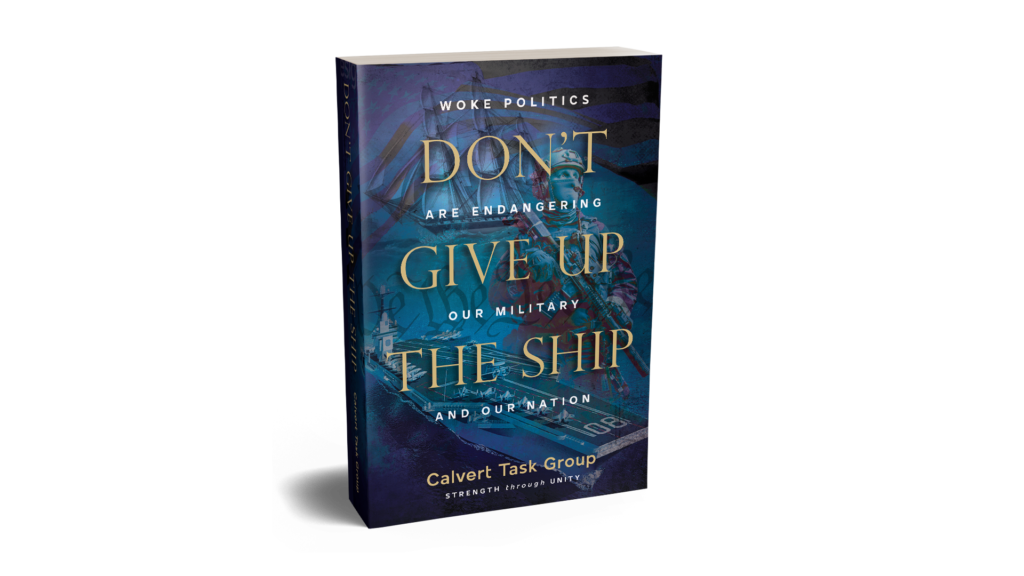Statement to DACODAI – Bob Neumann
3 May 2024 2024-05-18 13:27Statement to DACODAI – Bob Neumann
Statement to DACODAI by By former Navy Lt Commander Bob Neumann, USNA ’69
Equity
A record 41,000 recruits short in 2023. More than two-thirds of military families recommending against the military for their sons and daughters. Standards lowered to unprecedented levels in an attempt to meet manpower goals. Thousands of documented comments by current and former military personnel citing “wokeness” as their reason to separate from the service.
A letter signed by 180 retired flag officers addressed to the House Armed Services Committee in May 2023 lays out the problem. They know what they’re talking about and they should be listened to.
There is ample evidence that DEI is having detrimental and pernicious impact on our uniformed services. I would like to address just one aspect…that is the concept of “equity.”
David Robinson. You remember him. A member of the USNA graduating class of 1987, “The Admiral” went on to a most distinguished NBA career and has since added many other “admirable” accomplishments and societal contributions to his distinguished life.
David entered the Academy before DEI was implemented so one has to assume he was outstanding and qualified in every respect and that he was accepted for admission based on his outstanding academic record, a 1320 SAT score, physically qualified etc. and not on the fact that he is black, a superior athlete, and son of a Navy veteran or a product of “affirmative action.” David was deserving because of his character, his accomplishments, and his potential for leadership as a naval officer.
In other words, he was admitted to USNA based on merit, not on his race or anything else. The way he has conducted himself as a midshipman, junior officer, professional basketball player, businessman, and philanthropist are testimony to his character and to his deservedness. The Navy was right to offer him admission to USNA and the President was right to commission him in 1987.
David was only 5’10” as a high school junior but had grown to 6”6” by the time he received his appointment to USNA the following year. On induction day he had grown another inch, putting him over the 6’6” limit imposed by regulation but it was assumed his growth spurt was over and he would get no taller. So SECNAV granted a waiver and David was permitted to stay on. But the doctors were wrong. David continued to grow for another year, reaching his final adult height of 7’1”.
David’s unexpected growth had effectively made him the proverbial square peg looking at only round holes of opportunity in the Navy.
What to do?
David had amply demonstrated he was good officer material while at the Naval Academy and the Navy would certainly benefit by commissioning him. And David wanted to serve his country in the capacity for which the Academy was preparing him but both he and the Navy understood that his height would severely limit the billets available to him. He thought about dropping out after his second year in order to avoid the post-graduation commitment that all graduates incur, but he and the Superintendent worked out a sensible solution to allow him to stay on.
Upon graduation, David would be commissioned in the Civil Engineering Corps as a reserve officer, incurring only a two-year active duty commitment which he eventually completed honorably at the Kings Bay submarine base in Georgia. He then was free to commence his distinguished NBA career with the San Antonio Spurs, who had drafted him as their number one pick two years earlier.
The resolution to his height issue, while not optimum, was sensible and fair to all parties. David was able to pursue a career for which he was superbly destined (albeit with a two year delay), the Navy benefitted from his services as a junior officer at Kings Bay and also as a superb recruiting asset, and the taxpayers who footed the bill for his education got their money’s worth.
Fast forward to the DEI Navy of today.
Assume for a moment that it had been David’s lifelong dream to be a naval aviator, a fighter pilot. Assume service selection night arrives and David selects Navy Air as his first choice. Would today’s Naval establishment deny him his dream?
After all, a person can’t chose the circumstance of his birth…his parents, his neighborhood, his gender, his race, his physical attributes including even his ultimate height.
David is obviously qualified in every respect and has worked so hard to get get into position to realize his dream. Shouldn’t the Navy reward him for his efforts? Don’t the principles of “equity” demand it?
Yes there are physical requirements which David may be slightly in contravention of but, hey, standards have been stretched before in the name of “equity” and in all probability David would be an outstanding pilot so why not look the other way just this once. Everyone knows tall pilots are woefully under-represented in Navy Air.
I’m pretty sure David isn’t the type but, should he be denied, it would only take a call to OSD by someone like Al Sharpton or Jesse Jackson and Lloyd Austin no doubt would immediately be on the phone to SecNav, CNO, and NavAir with instructions to take whatever steps and make whatever accommodations necessary to see that David is not denied his shot at aviator “equity.”
Soon the directive would go out to Martin-Baker to modify all Navy ejection seats in the T-45, F/A-18, and F-35 to accommodate bodies of David’s sitting height. Of course, the canopies would also have to be made higher to accommodate the seat. The aerodynamics and radar signature and performance would be adversely effected and the aircraft profiles would look a bit cartoonish but small price to pay for all-important “equity.”
In anticipation of David’s eventual appearance in the fleet, all carrier JO bunkroom and officers stateroom bunks would need to be modified to accommodate 7’1” bodies. Linens too. And the list goes on.
In this scenario, David wins and he potentially achieves his lifelong dream (however at the same time forfeiting or delaying his NBA career). Equity is achieved. And the defense-industrial complex wins. But everybody else loses. The Navy loses massive budget dollars to senseless and unnecessary expenditures while gaining nothing and suffering marginally less capable air power.
However great David’s prowess in the air eventually proves to be, there is no reason to believe that any number of other aviators of more average height could not do the job as well or better, and without all the extra hassle, cost, and detriment to air power effectiveness.
Last of all, the taxpayer loses and is asked to give even more of his earnings to profligacy in the name of defense.
The point of this ridiculous illustration is that “equity”, while seemingly an admirable goal, is not always possible within reasonably attainable limits and without adverse effects. It’s a goal which while being pursued must remain contingent on and consistent with the ultimate purpose of the armed services.
Whatever excellent skills David Robinson might have had and however outstanding he might have been in many respects, he was simply not fit to be a fighter pilot. It’s a matter of priorities.
The purpose of any effective fighting force is to attain the highest potential lethality possible. The first necessities and therefore the highest priorities of a fighting force are whatever makes it stronger, more efficient, more versatile and resilient.
All other considerations are secondary, and that includes its demographic makeup and the wishes, desires, and ambitions of it’s individual soldiers or the political agenda driven by the particular ideological bent of the administrative authorities.

